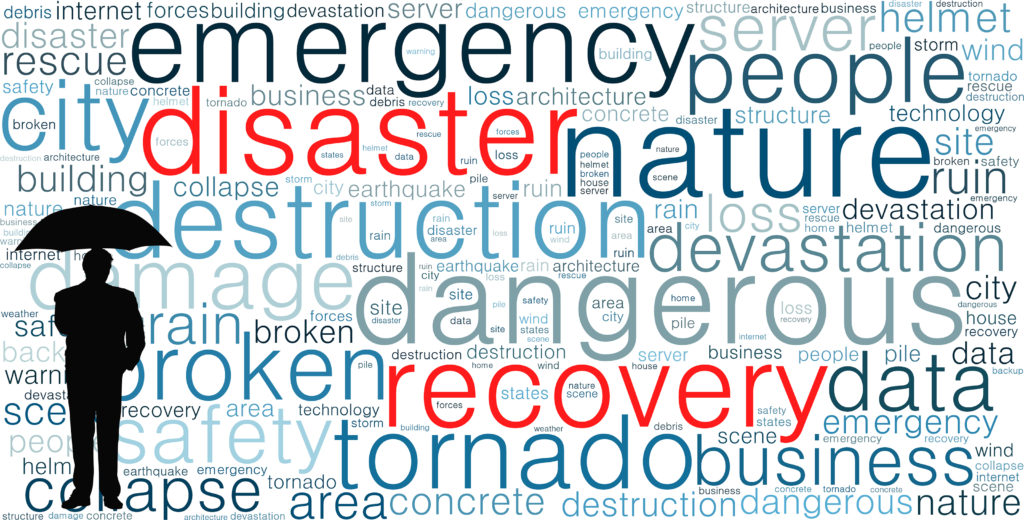
4 Questions to Vet Supplier-Partner Business Continuity Plans
June 18, 2020
While there’s over 7 million confirmed cases of COVID-19 and counting, the global economy has begun to reopen and positive signs are surfacing. The latest Manufacturing ISM® Report on Business® announced that the U.S. economy returned to expansion after a month of contraction. Unemployment numbers decreased in May 2020. We’re in a period where uncertainty has started to fade yet production levels are still reduced for at least the remainder of the year. As we prepare for the road to recovery, now is the time for equipment manufacturers to shore up your processes. COVID-19 leaves a lasting impression that the evaluation of your supplier-partners’ business continuity plans should rank high on your process optimization list.
“The pandemic serves as a reminder of the importance of proactive planning for manufacturing and supply chain continuity,” wrote Roger Shaw, Director of Risk Management at Miller Fabrication Solutions, in this ASCM Insights blog post. “In the grip of any crisis, those who have established thoroughly vetted continuity plans can more effectively sustain operations, maintain quality standards, consistently meet customer project deadlines and be poised to recover quickly when the crisis is over.”
Before you beef up your supply chain business continuity vetting process and mitigate your supply chain risk with the 4 questions to ask your existing and prospective supplier-partners, let’s review some of the different types of a crisis that your supply chain network should be prepared for.

Crises Can Come in Many Forms
Proper business continuity planning ensures an organization can continue operations before and during an unexpected disruption. For OEMs in heavy industries, like rail, construction and forestry and mining, threats can be industry specific, but generally your supplier-partners should be strategizing to ride out these crises, among others:
- Natural disasters
- Social injustices and legal claims
- Man-made disasters
- National emergencies
- Utility failures
- Intentional sabotage
- Data breaches or cybersecurity attack
- Health pandemics
Each type of crisis warrants its own series of actions, as no one crisis may necessarily impact a business the same way. To uncover risk levels among your supply base and ultimately your own organization, dig deeper with these 4 questions:
- What technologies are in place to enable remote connections, ensure access to business applications, and support employees and operations to continue production without interruption?
While COVID-19 has driven up the demand for virtualized business operations throughout the world, the trend towards a distributed environment doesn’t seem to be falling by the wayside anytime soon. Gartner suggests that organizations are undergoing redesigns less for the sake of efficiency now, and more to build resiliency. Therefore, it’s important to delve into initiatives that may reduce the requirement for hands-on and/or constant employee oversight/involvement, while maintaining or exceeding quality and scheduling expectations.
- How are redundancies factored into your business continuity plans?
Having a physical presence in more than one location can provide one type of redundancy. Still, your OEM supply chain will need assurance from redundancies in at least four other areas:
- Machinery — What are the backup plans if one or several machines go down or are rendered inaccessible?
- Production — What relationships can your supplier-partner draw upon to ensure consistent quality if it needs to offload overflow?
- Supply Chain — What has your supplier-partner done to guarantee an uninterrupted flow of necessary parts and materials?
- People — Are there people on hand at the supplier-partner who are cross-trained and prepared to carry out critical functions in the event of illness, absenteeism, strikes, layoffs, or plant shutdowns?
- What security prevention, detection and minimization strategies are in place?
Today security demands extend far beyond the physical walls of a company, though onsite security remains a critical component of business continuity and supply chain resiliency plans. Your supplier-partners should be expected to maintain active “fire and intrusion alarms, surveillance technology and/or personnel…as well as access control, which includes locks, key cards and device authentication,” says Shaw.
The risk-aware supplier-partner will have reliable firewalls, multi-factor authentication, intrusion detection and other operating protocols in place to protect sensitive company and customer data. Breach simulations should be conducted periodically to test existing strategies and update procedures. Ongoing training schedules to teach employees best Internet safety practices will minimize supplier-partner vulnerabilities and potential impact to your own equipment manufacturing operations.
- Can you substantiate your financial stability?
To fully gauge a supplier-partner’s ability to weather a crisis, you’ll need to understand the financial performance of the supplier-partner. Indicators such as financial reporting, minimal debt and good lines of credit over designated periods of time can support greater confidence in the longevity of that organization.
The Devil is in the Details
If nothing else, the coronavirus pandemic has taught manufacturing that simply asking if a supplier-partner has a business continuity plan in place isn’t sufficient. As Shaw wrote, “If the answer is yes and the OEM decision makers move on without delving into what those plans entail…they risk their own businesses’ ability to be agile in responding to implications from a crisis.”
Whether it’s a global health pandemic, natural disaster, cybersecurity breach or some other devastating event, knowing what to expect of supplier-partners can help your heavy equipment manufacturing firm reduce impact. Support business agility and continued success by taking the time to discuss the actions and procedures in place at suppliers to weather disruptions of any kind – with the 4 questions above serving as a good starting point.
Learn more about the business continuity and supply chain resiliency efforts in place at Miller Fabrication Solutions, and partner with a reliable Tier 1 supply chain partner for your heavy fabrication needs. Contact us today.